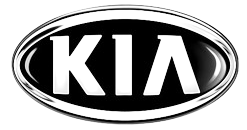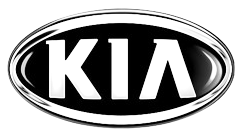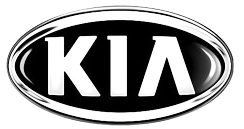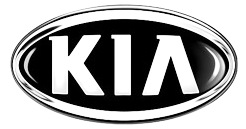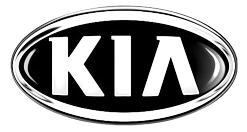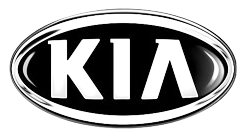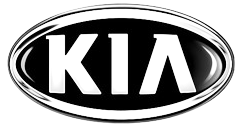From Wreckage to Resale: The Journey of a Wrecked Kia Car into Spare Parts
When a car gets wrecked, it’s not always the end of the road for it. Sometimes, especially with popular models like Kia, these cars can have a whole second life. We’re talking about the journey of a wrecked Kia car into spare parts. It’s a process that takes a damaged vehicle and turns it into something useful again, helping other car owners and the environment. Let’s explore how this happens. Key Takeaways A wrecked car’s future, including the journey of a wrecked Kia car into spare parts, often starts with an insurance assessment to see if it’s a total loss. Cars deemed a total loss can be sold at auction, frequently ending up in salvage yards that act as big warehouses for car parts. Salvage yards carefully take apart wrecked cars to find usable components, like engines, transmissions, or body panels, for resale. Extracted Kia parts go through checks, cleaning, and cataloging to make sure they are ready and priced right for customers. Recycling car parts helps reduce waste and supports a more sustainable approach to the automotive industry. The Initial Assessment Of A Damaged Kia When a Kia ends up in a wreck, the very first step is figuring out what kind of shape it’s really in. This isn’t just about a quick look; it’s a detailed evaluation to see if fixing it makes any sense at all. This assessment is the starting point for everything that follows, from insurance claims to potential resale. Determining Total Loss Status This is where the numbers game really begins. Repair shops and insurance adjusters look at the cost to fix the Kia versus what the car was worth right before the accident. If the repair bill is high enough, often more than 70-80% of the car’s market value, the insurance company will likely declare it a ‘total loss’. This doesn’t mean the car is completely destroyed, but rather that it’s not economically sensible to repair. Factor Description Repair Cost Estimated price to fix all damage. Actual Cash Value (ACV) The car’s market worth before the incident. Loss Threshold Typically a percentage of ACV (e.g., 75%). Insurance Company’s Role In Salvage Once a car is declared a total loss, the insurance company usually takes ownership of the vehicle. They’ll then decide what to do with it. Sometimes, they’ll sell it directly to a salvage yard or through a specialized auction. Their main goal is to recoup some of the money they’re paying out on the claim. They’re not in the business of fixing cars, so they’re looking for the quickest and most efficient way to move the damaged vehicle off their books. The insurance company’s decision here sets the stage for the car’s next chapter. It’s a business transaction focused on financial recovery. Owner’s Decision On The Vehicle’s Future Even if the insurance company declares the Kia a total loss, the owner might still have options. They could choose to buy the car back from the insurance company for its salvage value. This might be a good idea if the owner believes they can repair it more cheaply or if they want to keep it for parts. If they don’t buy it back, the insurance company handles the sale, and the owner receives the settlement amount minus the salvage value if they kept it. It’s a big decision that depends on the owner’s circumstances and their plans for the vehicle. From Wreckage To Salvage Yard So, your Kia got into a bit of a fender bender, or maybe something more serious. When a car is declared a total loss by the insurance company, it doesn’t just disappear. Instead, it often heads to a place where its remaining useful life can be extended – a salvage yard. These yards are like big holding areas for cars that aren’t roadworthy anymore but still have parts that someone else might need. The Auction Process For Totaled Cars When an insurance company pays out on a totaled vehicle, they usually take ownership of the wreck. What happens next? Often, these cars are put up for auction. Think of it like a big sale, but instead of furniture or electronics, it’s damaged cars. Buyers at these auctions are typically licensed salvage yards, dismantlers, or sometimes even individuals looking for parts or a project car. The price a car fetches at auction depends on a lot of things – its make and model, how much damage it sustained, and what parts are still in good shape. It’s a competitive environment, and the goal for the salvage yard is to buy these vehicles at a price that allows them to make a profit after dismantling and selling the parts. Salvage Yards As Part Depots Salvage yards are essentially warehouses for car parts. They’re not just random piles of junk, though. Good salvage yards are organized, with vehicles often sorted by make and model. They serve a really important role in the automotive ecosystem. Instead of a perfectly good alternator or a working transmission being tossed into a landfill, it gets a second chance. This is especially true for older or less common car models where new parts might be hard to find or very expensive. These yards become a go-to spot for mechanics and car owners looking for specific components to fix their own vehicles. Dismantling For Usable Components Once a car arrives at the salvage yard, the real work begins. Skilled technicians carefully go through the vehicle, identifying which parts are still functional and have resale value. This isn’t just a quick grab-and-pull operation. It involves a methodical process of removing components without causing further damage. Things like engines, transmissions, body panels, headlights, interior seats, and even smaller electronic modules are candidates for removal. The goal is to extract as many usable parts as possible, making sure they are handled with care so they can be cleaned, tested, and prepared for sale. The process of salvaging parts from a wrecked vehicle is a careful balance. It requires knowing











